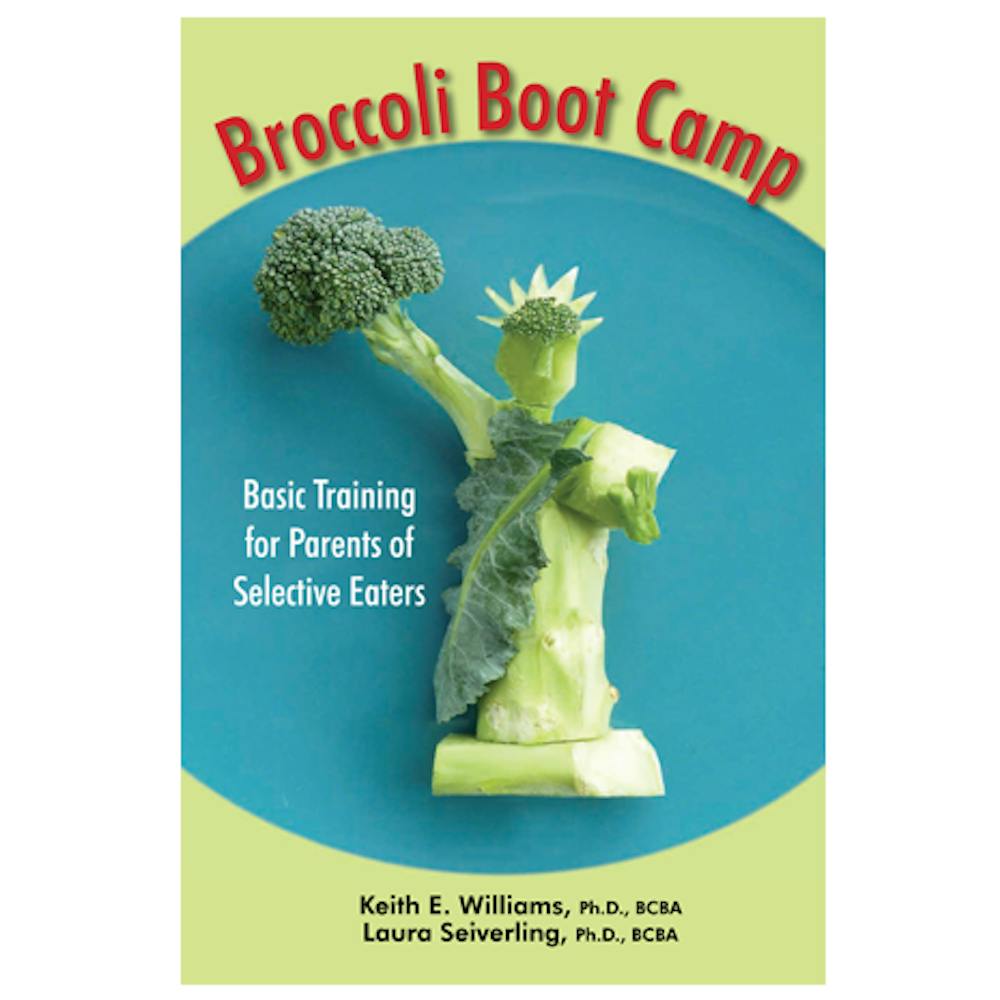Editor's note: A previous version of the story wrongly said Keith Williams is an associate professor of pediatrics, when he is a professor of pediatrics. The change has been made to reflect his appropriate title.
Getting picky children to eat their vegetables is a common struggle among many parents. While kids often have no desire to eat foods like broccoli, one Ball State professor has set out to solve this issue.
Laura Seiverling, assistant teaching professor of special education, has partnered with Keith Williams, professor of pediatrics at Penn State College of Medicine, to develop and co-author a “comprehensive guide for parents” on picky and selective eaters.
Broccoli Boot Camp, a book with an accompanying website, offers multiple methods that parents can use to expand and diversify their children’s diets and eating habits.
The book is based on the idea that when children are repeatedly encouraged to try new foods in tiny portions, they’ll resist it less often and eventually learn to accept and enjoy healthy foods.
“Learning to eat a wider variety of foods is similar to learning any other behavior,” Seiverling said via email. “It takes time and practice, but it is certainly possible.”
Seiverling and Williams’ goal was to make the knowledge they have gathered on the topic from experiences with picky eaters accessible to parents.
“This book was originally designed as a parent resource for patients seen in our clinical practices,” Seiverling said. “We have made it more widely available so families can help their children learn to eat a range of healthy foods at home — hopefully without the need of additional clinical intervention.”
In the book, the authors recommend starting with the introduction of small bites of new foods and gradually increasing bite sizes as the child starts to develop familiarity with the taste. Their research and data shows that food must be tasted between 10-15 times before a child successfully develops a preference for that food.
“The key is repeated taste exposure, or repeatedly exposing the child to new and non-preferred foods so these foods gradually become a part of the child’s typical diet,” said Christina Alaimo, a National Youth Service board-certified behavior analyst and licensed behavior analyst, in an email. “Generally, with repeated taste exposure, children begin to develop preferences for previously non-preferred foods.”
Because it is often difficult to get children to try new foods more than once, Seiverling and Williams said frustrated parents tend to give up after three or fewer tastes if their child refuses to try the food.
“If a child engages in crying and pushing-the-food-away behavior when a parent or caregiver is attempting to feed a particular food, and the parent or caregiver then removes that food or even presents the child’s preferred foods, [it] can make picky or selective eating more likely to occur in the future.” Alaimo said.
In addition to the methods and tips shared, Seiverling and Williams provide free downloadable resources for parents on their website, including data sheets for mealtime, food exposure and taste.
“This will allow parents to remember how many times they have presented a particular food and will allow them to document how their child responds to the food,” Seiverling said.
Seiverling and WIlliams said they hope parents find their plans helpful and experience success in improving their children’s diets.
“We also hope that mealtimes can become easier and more enjoyable for both parents and children through use of the strategies recommended in the book,” Seiverling said.
Contact Taylor Smith with comments at tnsmith6@bsu.edu or on Twitter @taynsmithh.





